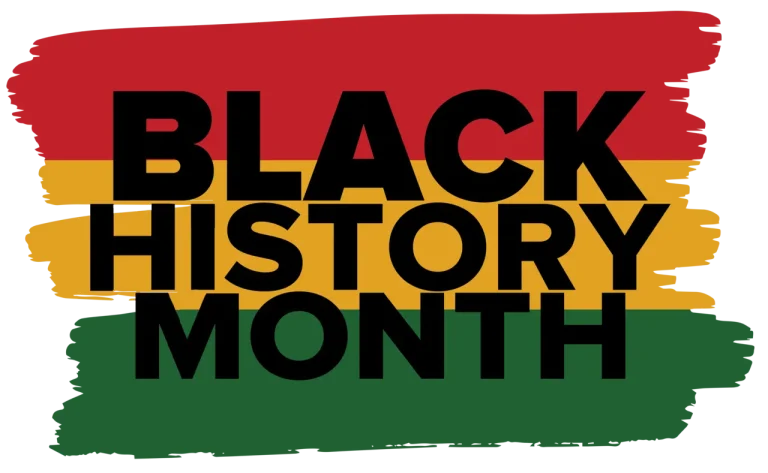As February arrives each year, it brings with it an important opportunity to celebrate and reflect upon the rich tapestry of African American history and culture. Black History Month stands as a beacon of remembrance, recognition, and resilience, commemorating the struggles and triumphs of Black individuals throughout history. In this blog post, we delve into the significance of Black History Month, exploring its origins, highlighting key figures, and emphasizing the importance of continuing the legacy of empowerment and equality.
Origins of Black History Month: Black History Month, originally established by historian Carter G. Woodson in 1926, aimed to ensure that the contributions of African Americans were acknowledged and celebrated. Woodson chose February for the observance to coincide with the birthdays of Abraham Lincoln and Frederick Douglass, two pivotal figures in the fight against slavery and for civil rights. In 1976, the week-long celebration expanded into a month-long observance, officially recognized by the U.S. government.
Honoring Trailblazers and Icons: Throughout history, countless Black individuals have made indelible marks on various facets of society, from civil rights and politics to literature, arts, and sciences. From luminaries like Martin Luther King Jr., Rosa Parks, and Malcolm X, who spearheaded the civil rights movement, to trailblazers such as Maya Angelou, Langston Hughes, and Toni Morrison, whose literary prowess continues to inspire generations, Black History Month serves as a platform to celebrate these extraordinary achievements and amplify their voices.
Reflecting on Challenges and Triumphs: While Black History Month is a time of celebration, it also prompts sober reflection on the enduring struggles faced by African Americans. From the horrors of slavery and segregation to systemic racism and social injustice, the journey towards equality has been fraught with obstacles. However, Black History Month also reminds us of the resilience, courage, and resilience displayed by Black communities in the face of adversity, inspiring hope for a more inclusive and equitable future.
Empowering the Next Generation: As we commemorate Black History Month, it is imperative to recognize that the fight for racial equality is far from over. Education, advocacy, and allyship are essential tools in dismantling systemic barriers and fostering a more just society. By amplifying Black voices, promoting diversity and inclusion, and advocating for equitable opportunities, we can honor the legacy of those who came before us while empowering future generations to continue the march towards progress and equality.
Black History Month is more than just a time to reflect on the past; it is a call to action—a reminder of the ongoing struggle for equality and justice. By honoring the contributions of Black individuals, acknowledging past injustices, and working towards a more inclusive future, we can ensure that the spirit of Black History Month resonates throughout the year, inspiring positive change and fostering a society where diversity is celebrated and all voices are heard. Let us seize this opportunity to reflect, learn, and stand in solidarity with the Black community, today and every day.
Exploring Black History: A Rich Tapestry of Heritage and Legacy
BlackHistoryMonth.gov, curated by the National Museum of African American History and Culture (NMAAHC), offers a comprehensive resource for exploring and commemorating the diverse history, achievements, and contributions of African Americans. Authored by various contributors and curated by experts in Black history and culture, the website features a wealth of articles, videos, and interactive exhibits that illuminate key moments and figures in Black history.
For those interested in delving deeper into specific topics or exploring related multimedia content, the website provides links and references to additional resources, including scholarly articles, documentaries, and archival materials. Whether you’re a student, educator, or simply curious about Black history, this online platform serves as an invaluable tool for learning, reflection, and celebration of the rich heritage and enduring legacy of African Americans.
Visit BlackHistoryMonth.gov for more information and exploration.
Exploring Black Excellence in Art: 16 Artists You Should Know
In the article “16 Black Artists to Know” by Sarah Gordon, featured on the National Gallery of Art’s website, readers are introduced to a diverse selection of contemporary Black artists whose works challenge norms, provoke thought, and inspire change. From the vibrant and dynamic paintings of Amy Sherald, known for her portrait of Michelle Obama, to the thought-provoking installations of Theaster Gates, the article showcases the breadth and depth of talent within the Black artistic community. Each artist’s unique style, perspective, and contributions to the art world are highlighted, offering readers a glimpse into the richness of Black artistic expression.
For those interested in exploring the artwork further, the original article by Sarah Gordon on the National Gallery of Art’s website provides links to each artist’s portfolio or relevant galleries, allowing for a deeper dive into their creative endeavors. Whether you’re a seasoned art enthusiast or someone curious about contemporary Black art, this curated list serves as a valuable resource for discovering and appreciating the exceptional talents of these 16 Black artists.
Link to the article: 16 Black Artists to Know
What is Black History Month and why? Black History Month occurs each February and seeks to spotlight the achievements of Black Americans in the United States. This year’s theme, “African Americans and the Arts,” offers a unique opportunity to explore the many contributions of Black artists and Veterans.
Why was February chosen for Black History Month? Carter G. Woodson chose February for reasons of tradition and reform. It is commonly said that Woodson selected February to encompass the birthdays of two great Americans who played a prominent role in shaping black history, namely Abraham Lincoln and Frederick Douglass, whose birthdays are the 12th and the 14th, respectively.
What President was involved in recognizing Black History Month? President Gerald Ford officially recognized Black History Month in 1976, calling upon the public to “seize the opportunity to honor the too-often neglected accomplishments of Black Americans in every area of endeavor throughout our history.”
How has the theme of Black History Month evolved over the years? Over the years, the themes of Black History Month have evolved to reflect the changing landscape of American society and highlight different aspects of Black culture and achievement. Themes have ranged from “Civil Rights in America” to “African Americans and the Vote” to “Black Health and Wellness.”
What are some ways to celebrate Black History Month? There are many ways to celebrate Black History Month, including attending events and exhibitions that honor Black culture, reading books by Black authors, supporting Black-owned businesses, and educating oneself on the history and contributions of Black Americans.
Can non-Black individuals participate in Black History Month? Absolutely. Black History Month is a time for everyone to come together to learn, celebrate, and recognize the achievements and contributions of Black individuals and communities. It’s an opportunity for people of all backgrounds to deepen their understanding of history and foster a more inclusive society.
Are there specific educational resources available for learning about Black history? Yes, numerous educational resources are available for learning about Black history, including documentaries, online courses, and curated lists of books and articles. Organizations such as the National Museum of African American History and Culture and the Association for the Study of African American Life and History provide valuable resources for educators, students, and the general public.
How can I support Black communities beyond Black History Month? Supporting Black communities goes beyond just one month of recognition. It involves advocating for policies that promote equity and justice, amplifying Black voices, supporting Black-owned businesses year-round, and actively engaging in anti-racist work to dismantle systemic barriers and address inequality in all its forms.
Donate to Organizations Supporting Black Causes: Consider donating to organizations dedicated to supporting Black communities, such as the NAACP Legal Defense Fund, Black Lives Matter Global Network, The Bail Project, and Color of Change. These organizations work tirelessly to fight for racial justice, civil rights, and systemic change.
Educate Yourself and Others: Take the time to educate yourself about the history of racism and oppression, as well as the experiences and perspectives of Black individuals. Use your knowledge to engage in meaningful conversations with friends, family, and colleagues, and challenge misconceptions and biases when you encounter them.
Support Black-Owned Businesses: Make a conscious effort to support Black-owned businesses in your community and beyond. Whether it’s shopping at Black-owned stores, dining at Black-owned restaurants, or hiring Black-owned services, your support can help create economic opportunities and empower Black entrepreneurs.
Advocate for Policy Change: Get involved in advocacy efforts aimed at addressing systemic inequalities and advocating for policy change at the local, state, and national levels. This may involve contacting elected officials, participating in protests and rallies, and supporting legislative initiatives that prioritize racial justice and equity.
Amplify Black Voices: Use your platform and privilege to amplify the voices of Black individuals and communities. Share their stories, perspectives, and accomplishments on social media, in your professional networks, and in your everyday interactions. By uplifting Black voices, you can help counteract marginalization and promote inclusivity.


